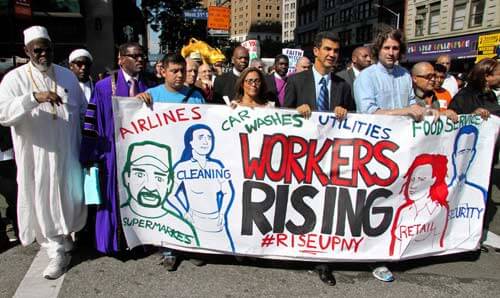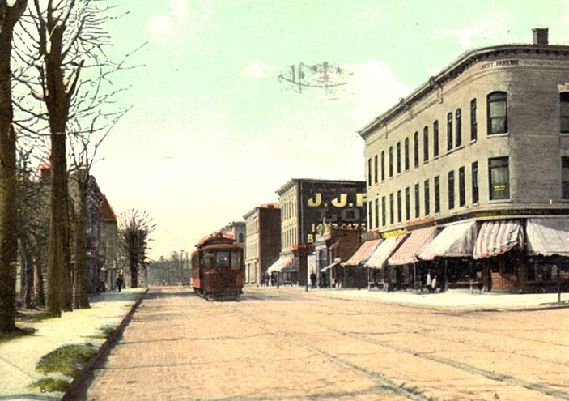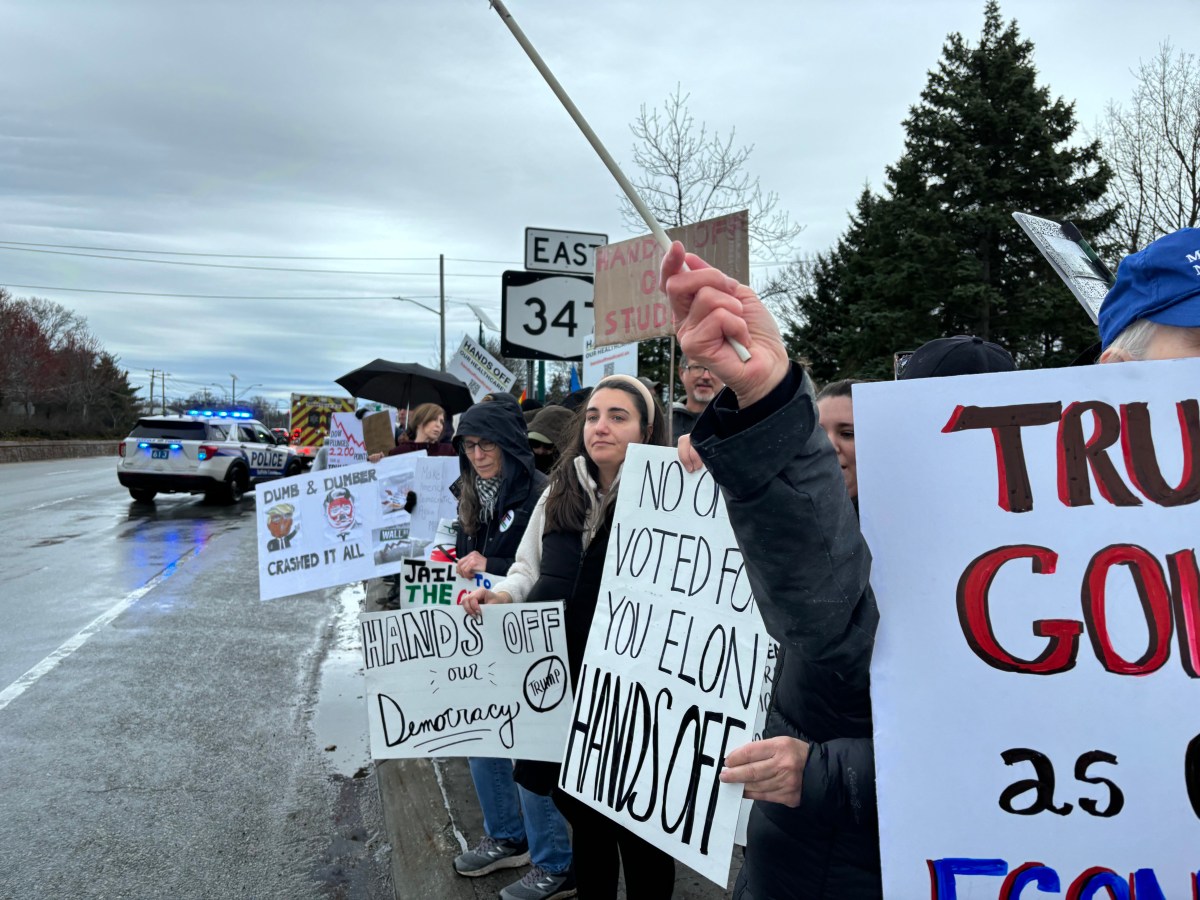“The workers want a decent wage; one they can live on!”
“The minimum wage, $7.25, just isn’t enough!”
Those were the themes on June 24, on the National Day of Action for workers rights and fair wages, as workers from many service sectors joined together to demand a living wage, benefits, safe working conditions and respect.
Under a searing sun at 32nd and Broadway, workers and worker groups gathered, backed by City Council Speaker Quinn and other City Council members, Manhattan Borough President Scott Stringer, Public Advocate de Blasio, other political and religious leaders, and Union officials to plead their cause.
Agustin Perez washes cars. Modesto Gonzalez works in a supermarket. Ann works in retail. Another was the wife of a locked-out Con-Ed worker. Each spoke of their situation. Gonzalez worked for six years at an Associated Market and was fired when he began to organize workers.
“Low wage workers make up a quarter of all households in this wealthy city,” said Rev. Chole Breyer, Executive Director of the Interfaith Center of New York. “I stand with health aides, domestic workers, car washers and other low wage workers–with faces that are too often female–and call for the raising of the minimum wage.”
A report from United NY and ALIGN cites that car washes, airline contractors and supermarkets were among the worst employers of low-wage workers in the city.
The minimum wage of $7.25 an hour is $15,000 a year — far below the poverty line for a family of four.
CEO’s of many of the corporate employers of these workers have received huge bonuses or compensation packages while employees struggle on their minimum wages.
Reiterated by many speakers was the idea that putting money into hands of workers will stimulate the moribund economy because these workers will spend the money on things they need. “The 99% needs a raise to help create jobs and grow our economy from the bottom up,” said Hector Figueroa, Secretary-Treasurer of 32BJ.
State Senator Jose Peralta said, “During the 60s and 70s, a single minimum-wage job could keep a three-person family above the federal poverty level. Today, it’s impossible to make ends meet in New York earning only the minimum wage.”
Following the midtown press conference, the assembled began their walk to Union Square, stopping at selected “bad employers” along the way. JCPenney was the first. (The demand was that commissioned sales positions be restored and that JCPenney should comply with fair scheduling and minimum hours.)
The demonstrators raucously marched on the sidewalk down 6th Ave. and then Broadway, accompanied by a ragtag brass band. They also stopped along the way at Bain Capital-owned Dunkin’ Donuts and Burlington Coat Factory.
At Union Square, the marchers joined a rally with hundreds more from unions including Utility Workers Union of America Local 1-2, whose members are in a labor dispute with Consolidated Edison and who, while negotiating their contract, have been locked out of their job since July 1.


























